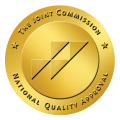If you or someone you care about is struggling with cocaine or methamphetamine (meth) use, understanding the detox process is an essential first step toward recovery. Let’s break down what happens in your body and how to get help safely.
Dopamine: The “Feel-Good” Chemical

Your brain naturally produces a chemical called dopamine that makes you feel good. Think of it like your body’s own happiness messenger. When you do something enjoyable, like eating chocolate or petting a dog, your brain releases this feel-good chemical.
Stimulant Addiction’s Impact on Dopamine
Here’s something surprising: while natural activities like eating chocolate can increase dopamine by 50%, and activities like hugging can raise it by 75%, stimulants like cocaine and meth create much bigger spikes. Cocaine can triple your dopamine levels, while meth can increase them by an astounding 1,200%.
Over time, this massive flood of dopamine changes how your brain works. Activities you once enjoyed may not feel as good anymore because your brain has been rewired to respond mainly to these powerful drugs.
Cocaine vs Meth
Cocaine and methamphetamine share certain similarities because both are strong stimulants that affect the central nervous system, producing feelings of euphoria and increased energy. However, there are notable differences between the two substances.
The Similarities
Both cocaine and meth are stimulants that:
- Create intense feelings of pleasure
- Lead to strong cravings
- Can cause sleep problems
- Raise blood pressure
- May trigger anxiety and paranoia
- Can lead to serious addiction
The Differences
While both drugs are dangerous, they affect your body differently:
Cocaine:
- Shorter-lasting effects
- Quicker onset of action
- Different withdrawal timeline
- Less severe long-term physical effects
Meth:
- Much longer-lasting effects
- More intense dopamine release
- More severe physical side effects
- Longer withdrawal period
Side Effects of Cocaine and Meth

Using these drugs can lead to serious health problems and side effects like:
- Sleep deprivation
- Anxiety and paranoia
- Substance-induced psychosis
- High blood pressure
- Risk of infections like HIV and Hepatitis C (especially with needle use)
- Dental problems (“meth mouth”)
- Memory problems
- Mood swings
- Heart problems
Understanding Stimulant Withdrawal
When someone stops using cocaine or meth, their body and brain need time to adjust to functioning without these drugs. Withdrawal is your body’s natural response to this change. Think of it as your brain trying to reset itself because it’s been running at “high speed” with these stimulants, and now it needs time to remember how to work normally again.
Withdrawal from stimulants can be challenging both physically and mentally. Unlike some other drugs, stimulant withdrawal isn’t usually life-threatening, but it can be very uncomfortable and emotionally difficult. The intensity of withdrawal symptoms often depends on how long someone has been using the drug, how much they typically use, and their overall health.
Cocaine Withdrawal
When withdrawing from cocaine, you might experience:
- Extreme tiredness
- Difficulty focusing
- Depression
- Strong cravings
- Anxiety
- Sleep problems
Treatment for cocaine abuse can help you manage these symptoms safely.
Meth Withdrawal
Meth withdrawal can be particularly challenging:
- Severe fatigue
- Depression and anxiety
- Intense drug cravings
- Sleep disturbances
- Difficulty feeling pleasure
- Potential mood swings
Treatment for meth abuse provides professional support during this difficult time.
Detoxing From Cocaine and Meth

Detoxing from cocaine and meth requires a safe and structured process to manage withdrawal symptoms and reduce the risk of relapse. Both substances can impact the brain and body differently, but detox protocols share some common steps.
How to Detox From Cocaine
Cocaine detox typically includes:
- Medical supervision
- Medication for symptoms
- 3-5 days initial detox period
- Support for anxiety and depression
- Sleep assistance
- Regular medical monitoring
Methamphetamine Detox
Meth detox often requires:
- 5-7 days initial detox period
- Medical support for withdrawal
- Blood pressure monitoring
- Sleep support
- Emotional care
- Nutritional support
Safely Detox Under Medical Supervision

While withdrawal from cocaine and meth isn’t usually life-threatening, quitting on your own can be tough and risky. Medical detox offers a safe and supportive environment with professional monitoring, medication to ease symptoms, emotional guidance, and a higher chance of success. It also sets you on the path to long-term recovery.
After detox, preventing relapse becomes crucial. Many people benefit from continuing treatment, counseling, and support groups. Recovery is possible with the right help and support.
Remember that you’re not alone in this journey. Professional help is available, and many people successfully recover from cocaine and meth addiction every day. The first step is reaching out for help.







